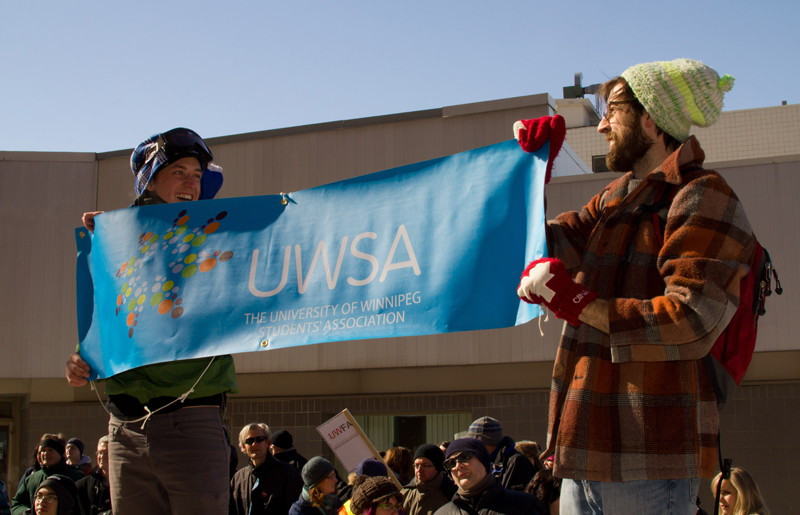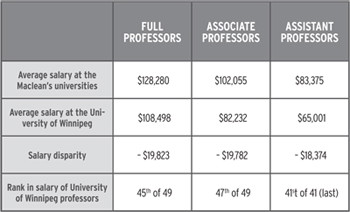What a strike means for students
Between the water main break on Spence Street and the threat of a possible faculty strike, the past week has been tense at the University of Winnipeg.
Unfortunately, it does not look as though the tension will subside soon.
On Wednesday, March 2, the University of Winnipeg Faculty Association (UWFA) voted in favour of a strike, putting pressure on university administration to negotiate a reasonable settlement within the week.
The original strike deadline of Wednesday, March 9 at 12:01 a.m. was later pushed back one day.
The UWFA previously rejected two offers made by administration for their collective agreement contract.
The two sides reached an impasse on Saturday, March 5. Salary continues to be the primary issue preventing the UWFA and U of W administration from reaching an agreement.
“A lot of the decisions (students will) be asking about are out of (UWFA members’) hands,” politics professor Peter Ives said during an information session for students on March 3. “How long it’s going to be, and what happens afterwards is negotiated in a back door protocol between the two bargaining teams.”
During the information session, Ives pointed out that there has never been a university term cancelled because of a faculty strike in Canada.
In the event of a strike, the days lost will be added to the end of the semester, extending the school year.
Professors will not do any work as employees of the U of W during the strike.
The timing of the strike could not be worse, with students panicking to find summer jobs and finish the last month of classes.
“ Usually I go to Vancouver (in the summer) and if they extend the school year ... it screws things up, especially if I take spring courses.
Matt Metcalf, second-year geography student
This could mean that students like Matt Metcalf, a second-year geography major, will have to make new travel plans.
“Usually I go to Vancouver (in the summer) and if they extend the school year ... it screws things up, especially if I take spring courses,” he said.
Kristine Hansen, UWFA president, and Ives want to reassure students that the strike was not deliberately timed to garner student action.
Negotiations have been taking place for almost a year – an abnormally long time for a collective agreement.
“Because it’s an agreement about our work, students get caught in between because (they) are our work,” Ives noted. “There is no real point in striking over the summer because ... that doesn’t put pressure on the administration.”
Ives added that contract faculty are not under the same agreement as full-time professors and will continue to teach during the strike.
The starting wage for professors at the U of W is 9.5 per cent less than those of the same ranking at the University of Manitoba.
The UWFA’s collective agreement is available online, and highlights the fact that the university is the lowest paid in the province.
The administration wants students to understand the financial challenges they face.
“Overall, (U of W faculty salaries are) a reflection of our funding situation,” said Dan Hurley, associate vice-president external affairs for the U of W. “On average, the U of W is much lower in terms of our per student operating grant we receive (from the provincial government) compared to U of M and Brandon University.”
Hurley also notes that the university is experiencing a tight budget, limited sources of revenue and operating grants for tuition.
The University of Winnipeg Students’ Association (UWSA) is supporting the UWFA, hoping that increased wages will attract high quality instructors.
“If there is a strike, student pressure to get things moving again ... will help speed that process along. ... It’s good for students to have faculty that are compensated fairly,” said Katie Haig-Anderson, vice-president advocate for the UWSA.
Log on to www.uniter.ca for daily updates. You can also follow The Uniter on Twitter (www.twitter.com/TheUniter) and Facebook (www.tinyurl.com/TheUniter) for updates.
“Labour dispute points to larger issues” – See our editorial on page 9.
Published in Volume 65, Number 22 of The Uniter (March 10, 2011)








